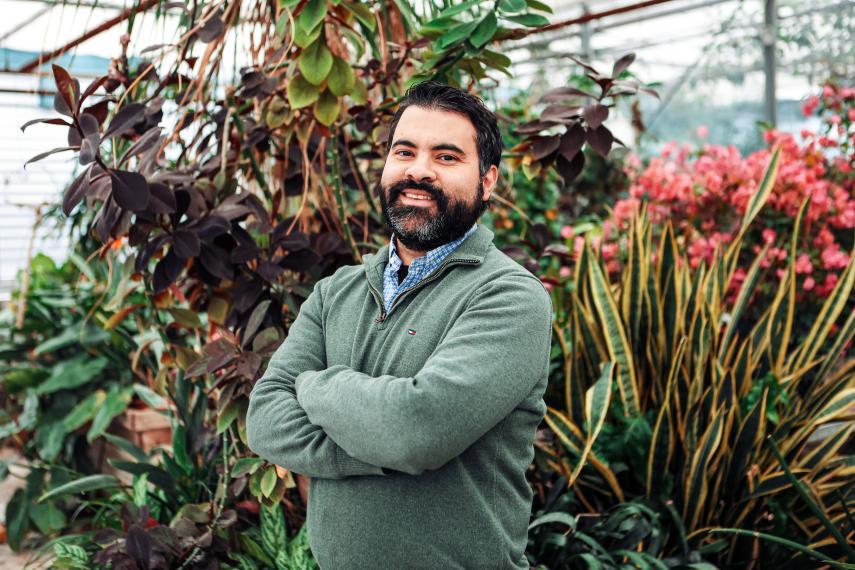Dr. Adrian Correndo: Nurturing Sustainability in Crop Research as the Pick Family Chair

Last month, Dr. Adrian Correndo joined the Ontario Agricultural College (OAC) as the new Pick Family Chair in Sustainable Cropping Systems. Based in the Department of Plant Agriculture, Dr. Correndo brings a wealth of global experience in agronomy and agricultural science to U of G and OAC.
This new chair position is funded by Martin and Denise Pick Family through a $2-million gift to the OAC, along with funding from OAC and an anonymous bequest.
His academic career began in 2008 at the University of Buenos Aires (Argentina) where he studied agronomy, and continued working for a decade in soil fertility and crop nutrition at the Southern Cone Office of the former International Plant Nutrition Institute. In 2018, he moved to the USA as a Graduate Research Assistant while pursuing his Ph.D., and later as a Postdoctoral-Fellow in Agronomy (2021) at Kansas State University. His doctoral research explored nitrogen in corn and soybean cropping systems.
Read more about Dr. Correndo’s research and expertise in the below Q&A
What is the focus of your research?
“I see transdisciplinary research collaborations as crucial for this position. Sustainable cropping systems requires this integration of multiple areas of research. Agronomy brings us the core understanding, but identifying the best crop and soil management practices also requires exploring environmental, economics, and social dimensions.
I also see a significant value on both on-farm and long-term research trials. On-farm trials are beneficial as they allow us to consider the actual variability that farmers deal with. Long-term trials allow us to examine the effect of time, which is critical to understand soil carbon trends and more. My vision is maintaining and leveraging the value and legacy of long-term trials, such as those located at the Elora Research Station, where management practices such as tillage, crop rotation, cover crops, and fertilization management are the focus of study.”
Why did you choose to come to the University of Guelph?
“The OAC at the University of Guelph is a worldwide recognized institution in agricultural research and education. My mission is both developing a research program with positive impact in our communities and educating future leaders of agriculture, and the UofG offers the perfect environment for it.
Since I was I child, my father taught me that farming is one of the most respectable and noble activities a human being can do. Thus, my primary goal is developing a research program to the service of farmers to thrive on the challenge of being profitable while taking care of our communities, resources, and environment.
I also aim my research program to contribute on creating more awareness, and consciousness about sustainable agriculture, demonstrating how farmers and scientists incessantly work in the search of it.”

How do you feel about being the Pick Family Chair in Sustainable Cropping Systems?
“It is an immense honor, and a truly exciting challenge as well. The Pick Family leads by the example in terms of creating and maintaining a legacy. Their contribution to the “Sustainable Cropping Systems” Chair position is not a coincide. For me, it is a clear expression of their vision and commitment to build in the long-term, to invest in a better future. And I am fully committed to honor these values.”
What does the future of your discipline look like? Where are we heading?
“Agriculture faces a mixture of challenges: increasing population demanding more and higher-quality food, fuels, and fiber; climate change increasing the odds of extreme weather; unprecedented pressure from the public eye and governments. On the other hand, during the last decades we are observing technology developments that assist in making farming more site-specific and efficient, although their adoption remains limited. In recent years, we are experiencing a rise in big-data and machine-learning algorithms. Yet we must acknowledge we are still on a learning-phase towards properly training our professionals with a robust data analysis skillset. I think this is one of the keys for the future: the role of the scientists, agronomists, and consulting teams is amplifying, expanding to embrace and integrate more and more the agronomic knowledge with quantitative data skills. ”